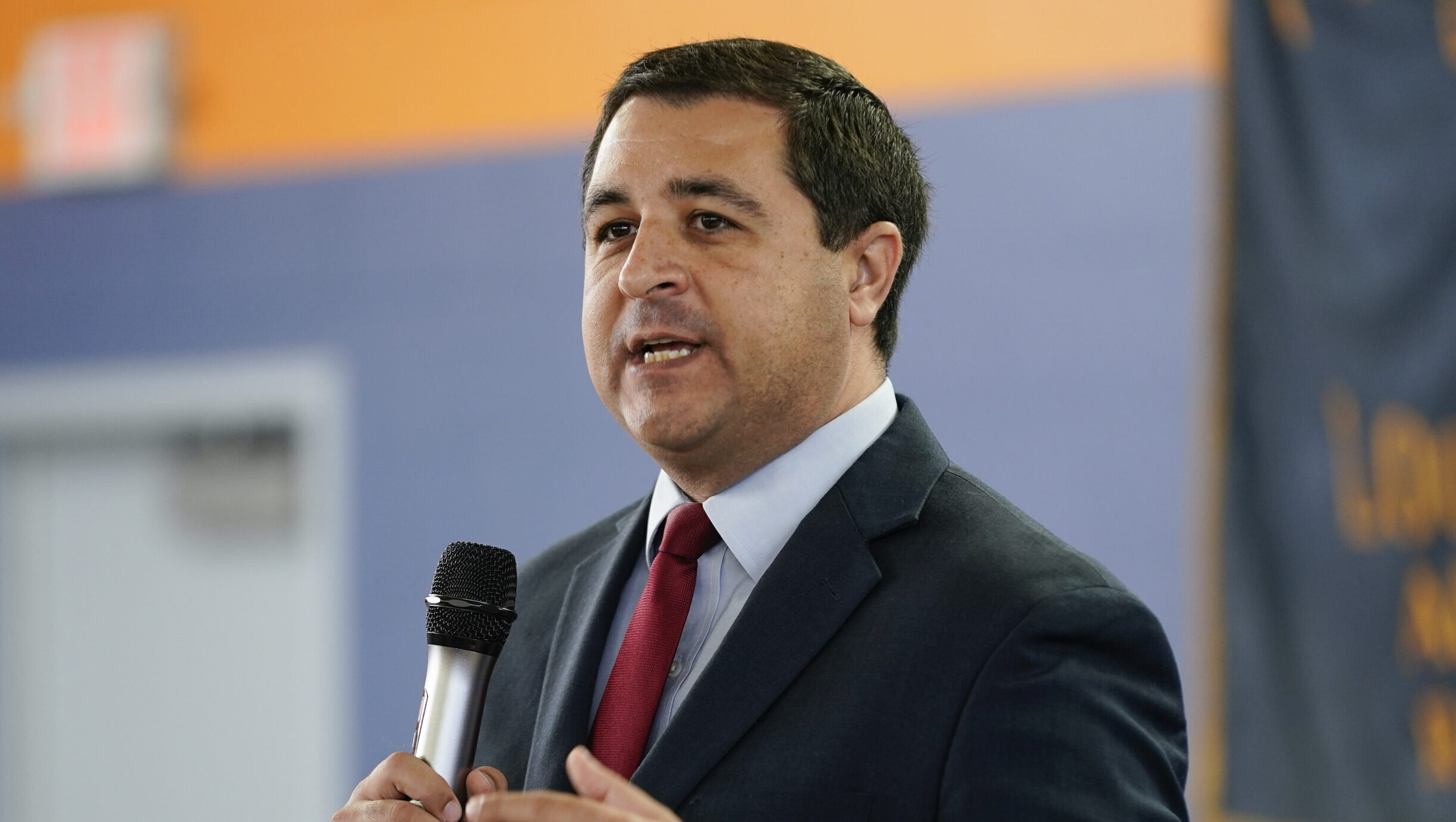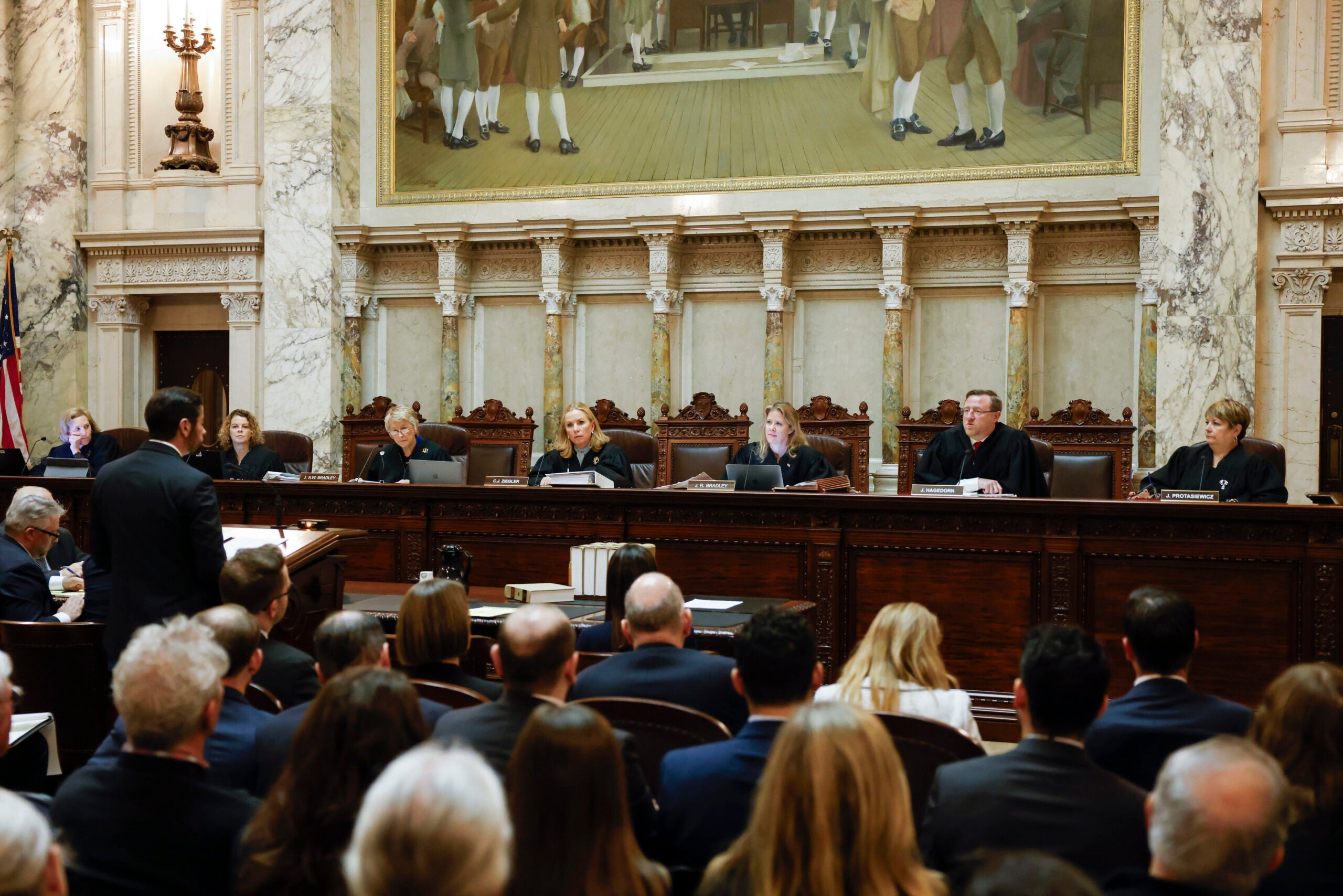The Wisconsin Supreme Court ruled Wednesday that state Superintendent Tony Evers can choose his own lawyer to defend the Department of Public Instruction against a lawsuit by the conservative Wisconsin Institute for Law and Liberty.
The unsigned 4-3 decision went against the wishes of Gov. Scott Walker, who wanted Wisconsin Attorney General Brad Schimel, a fellow Republican, to represent DPI.
The dispute has taken on added significance this year because Evers is one of several Democrats vying to defeat Walker in the November election.
Stay informed on the latest news
Sign up for WPR’s email newsletter.
Justices who sided with Evers wrote that letting Schimel decide what’s best for DPI would give the Attorney General “breathtaking power.”
“It would potentially make the attorney general a gatekeeper for legal positions taken by constitutional officers, such as the governor or justices of this court sued in their official capacity,” the court wrote. “DOJ’s position would not allow a constitutional officer to take a litigation position contrary to the position of the attorney general. We decline to adopt this view.”
While Wednesday’s ruling means Evers will have every opportunity to defend himself, the case itself has yet to be decided.
WILL sued Evers late last year, arguing he was violating a new law that puts limits on the power of state agencies to write administrative rules, which are the fine details of laws.
The law requires agencies that write rules to present “scope statements” to the Department of Administration first. The DOA answers to Walker.
Evers contends the law infringes on his independence as a constitutional officer, pointing to a Wisconsin Supreme Court ruling just two years ago that found a similar law did not apply to DPI.
Since then, Justice David Prosser, who sided with Evers, has retired from the court, and was replaced by Justice Daniel Kelly, a Walker appointee.
In Wednesday’s decision, Kelly and Justice Michael Gableman signed on to a dissent written by Justice Rebecca Bradley that attacked the court’s majority, saying its opinion “flatly disregards the text of our constitution and statutes.”
Bradley said the state constitution said nothing about giving the state Superintendent the power to hire legal counsel, and no state law gave him the power to hire his own lawyer or fire the DOJ.
“The majority creates a dangerous precedent,” Bradley wrote. “It brandishes its superintending authority like a veto over laws it does not wish to apply. In doing so, it thwarts the will of the people.”
The four justices who sided with Evers in this case included two conservatives, Patience Roggensack and Annette Ziegler, and two liberals, Shirley Abrahamson and Ann Walsh Bradley.
A third liberal, Rebecca Dallet, will replace Gableman on the court on August 1.
All seven justices agreed on another issue, ruling that Walker need not be a party to the case.
Wisconsin Public Radio, © Copyright 2025, Board of Regents of the University of Wisconsin System and Wisconsin Educational Communications Board.





